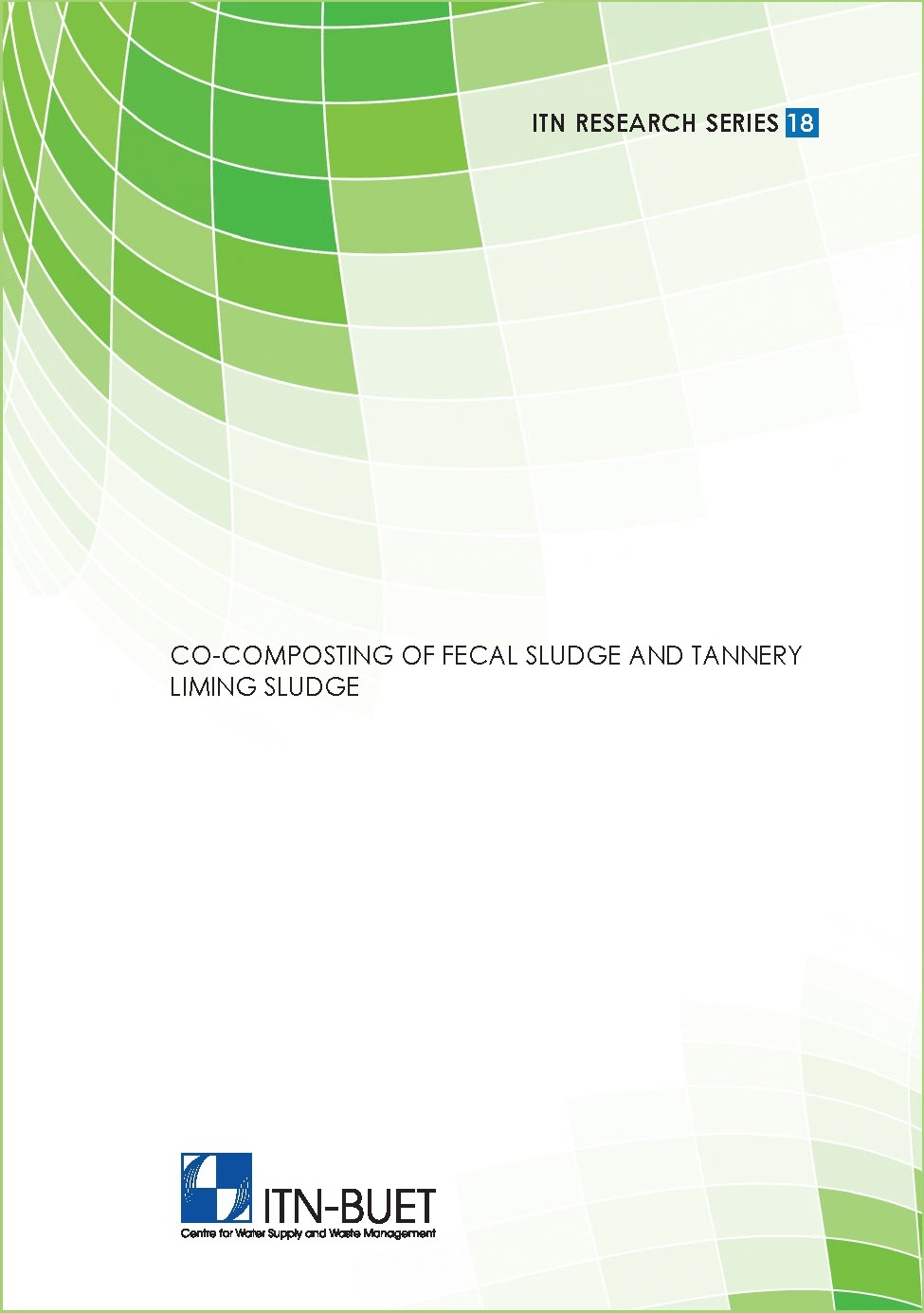Co-composting of Fecal Sludge and Tannery Liming Sludge
Publisher(s): ITN-BUET

Category(s): Research
Language: English
Publication Year: 2024
Document Type: PDF
Co-composting offers a promising approach to treating fecal sludge in combination with industrial sludge along with bulking agents, using nature’s power. They gradually transform sludge into valuable products for safe use in the agriculture industry. By embracing nature-based solutions like co-composting, Bangladesh can address Fecal Sludge Treatment Plant (FSTP) sludge and liming sludge and make progress towards Sustainable Development Goals (SDGs) 11.6 and 12.5, which focus on creating sustainable cities and communities and promoting responsible consumption and production.
This study focuses on sludge treatment as well as end-use potential to prevent pollution, protect public health, and ensure a circular economy. Researchers explore the potential of Co-composting as a low-cost, green technology for fecal sludge management. An innovative aspect is the integration of liming sludge into Co-composting, producing good quality compost with standard nutrient content while achieving sustainable sludge management. This aligns with resource management and the SDGs. The research provides insights into environmental compatibility and the optimum ratio of fecal sludge-liming sludge mixture for composting and compares the properties of final compost with industrial-grade fertilizers. The study’s outcomes hold potential for managing fecal sludge and liming sludge in resource-constrained settings.
Keywords
Co-composting, Fecal Sludge, Tannery Liming Sludge
Copyright
This is an open access work distributed under the terms of the Creative Commons Attribution License, which permits unrestricted use, distribution, and reproduction in any medium, provided the original work is properly cited.
No comment yet.